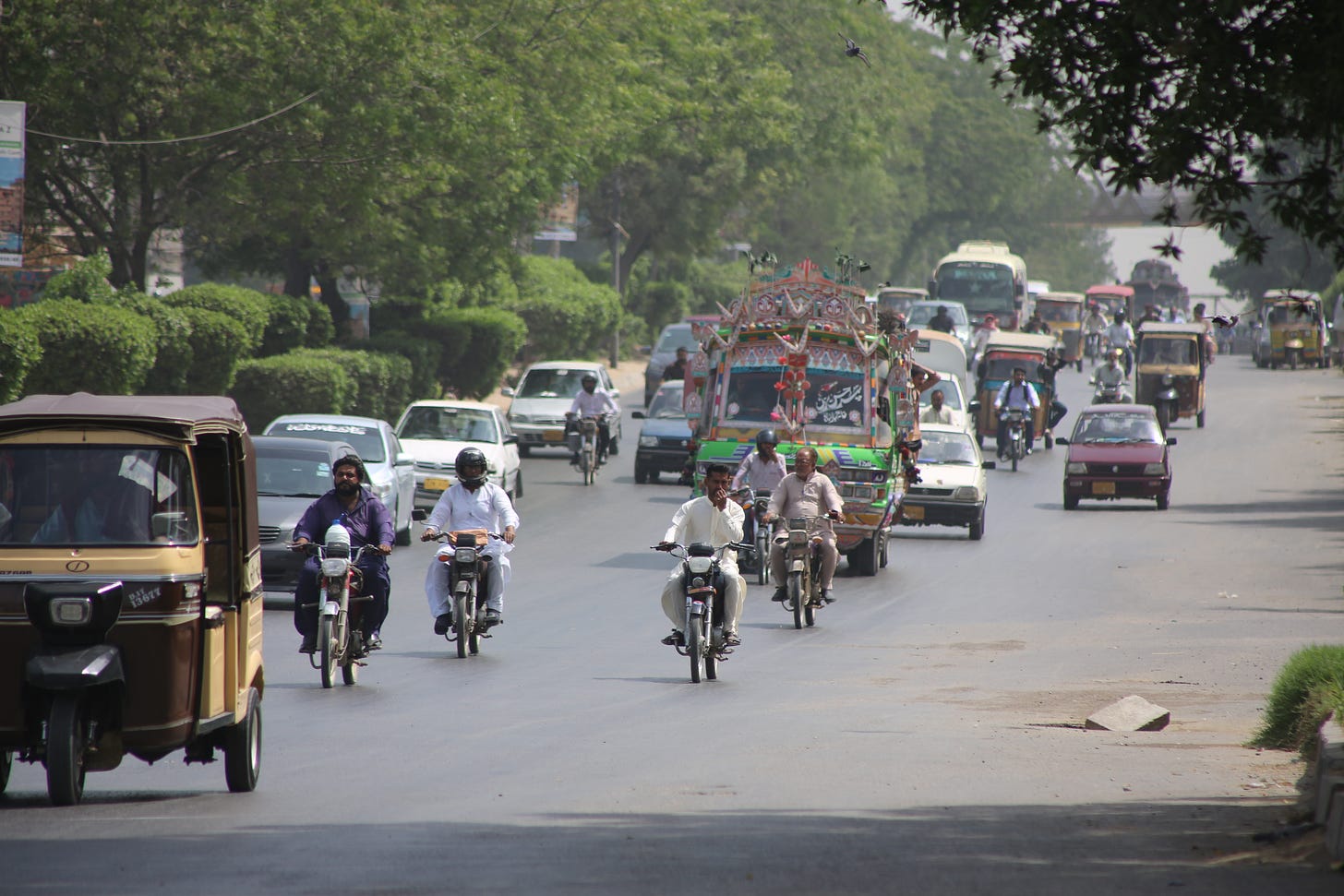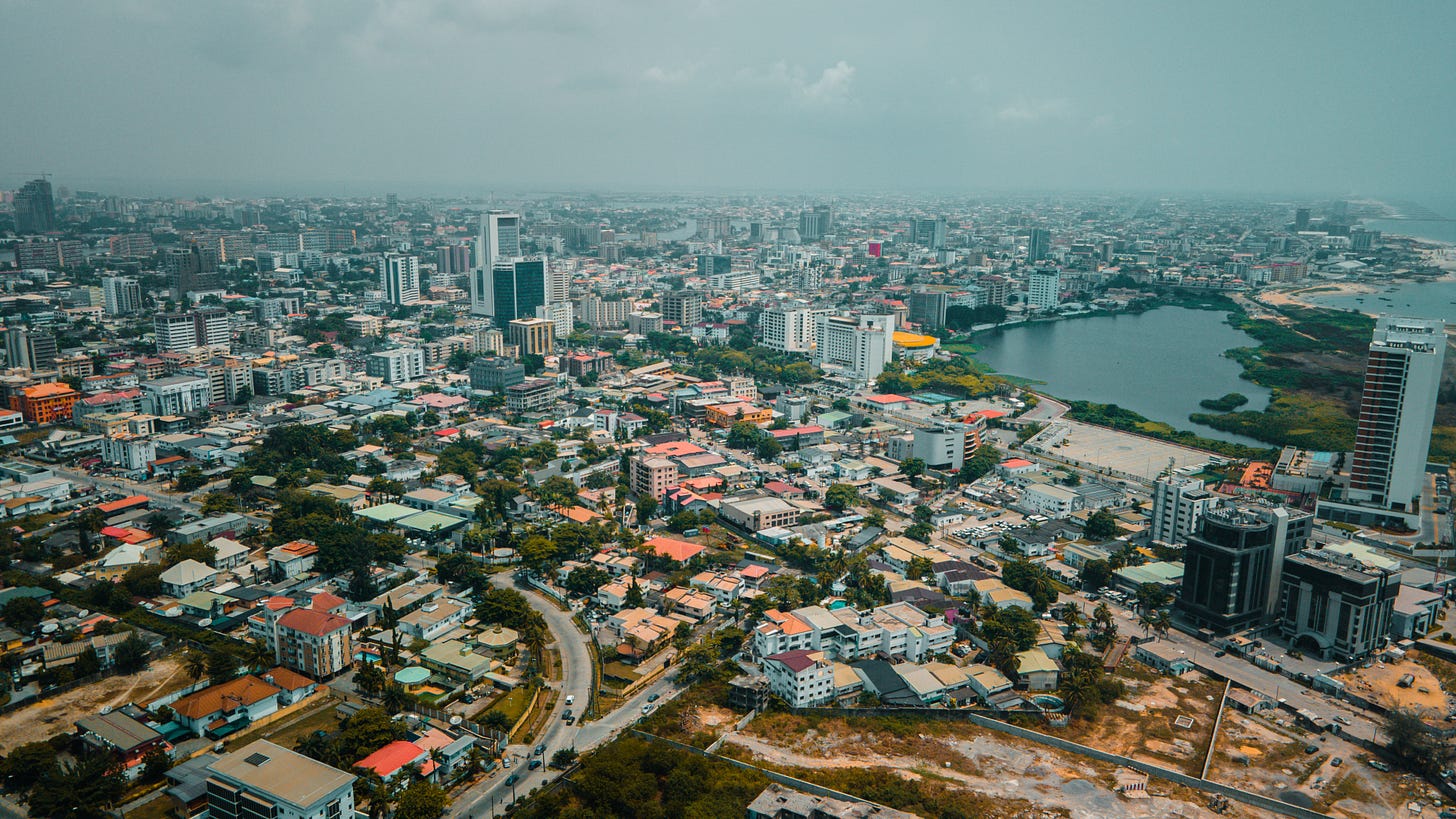Emerging Markets Monitor - July 22
Pakistan Default Fears, Russia-Ukraine Deal Unlocks Grain Exports, Investors Return to India, Qatar's Ooredoo To Exit Myanmar, Nigeria Recession Looms
The Top 5 Stories Shaping Emerging Markets from Global Media - July 22
Pakistan Rupee Falls Fast as Default Fears Intensify
Financial Times
"Pakistan’s currency endured its worst week in more than two decades, reflecting investors’ worries that the country risks following Sri Lanka to become the next emerging economy to default on foreign repayments.”
“The Pakistani rupee’s 7.6 per cent tumble to Rs228 to the dollar marked the latest setback for the currency, which has fallen sharply this year. It marked the rupee’s sharpest weekly drop since October 1998.”
“The latest slide reflected mounting concerns that a $1.2bn loan disbursement from the IMF agreed last week might not be enough to avert a balance of payments crisis. Pakistan’s bonds have been among the worst performers in emerging markets this year.”
“Sri Lanka’s economic collapse and default on its foreign debt in May led to a full-blown political crisis last week, forcing then-president Gotabaya Rajapaksa to flee mass protests into exile.”
“The country’s fall was one of the most stark manifestations yet of a broader fragility in emerging markets, which are feeling the brunt of greater risk aversion among investors and higher commodity prices and interest rates.”
“However, Pakistan’s larger population, strategic location, and nuclear-armed status mean that a financial crisis there would have more serious implications, analysts said.”
“…Fitch Ratings this week downgraded its country outlook to negative from stable, noting what it called a ‘significant deterioration in Pakistan’s external liquidity position and financing conditions’ this year.”
“…On Sunday, voters in Punjab province, Pakistan’s most populous region, handed victory to the party of former prime minister Imran Khan, who was ousted in April. Khan this week called for early elections, and on Wednesday said Pakistan was teetering towards an ‘economic collapse’.” The FT reports.
Russia and Ukraine Sign Deals to Clear the Way for Grain Exports
Associated Press
“Russia and Ukraine signed separate agreements Friday with Turkey and the United Nations clearing the way for exporting millions of tons of desperately needed Ukrainian grain — as well as Russian grain and fertilizer — ending a wartime standoff that had threatened food security around the globe.”
“The deal will enable Ukraine — one of the world’s key breadbaskets — to export 22 million tons of grain and other agricultural products that have been stuck in Black Sea ports due to Russia’s invasion. U.N. Secretary General Antonio Guterres called it ‘a beacon of hope’ for millions of hungry people who have faced huge increases in food costs.”
“‘A deal that allows grain to leave Black Sea ports is nothing short of lifesaving for people across the world who are struggling to feed their families,’ said Red Cross Director-General Robert Mardini, who noted that over the past six months prices for food staples have risen 187% in Sudan, 86% in Syria, 60% in Yemen and 54% in Ethiopia.” AP reports.
After $30 Billion Exodus, Global Funds Trickle Back to India
Bloomberg
“Foreign funds are showing signs of a return to Indian equities as recent declines in oil prices and the dollar bring some reprieve for emerging markets.”
“Overseas investors have bought a net $1 billion of local stocks in the first three days of this week, according to the latest available exchange data compiled by Bloomberg. That puts them on course for the first weekly purchases since April. They dumped almost $30 billion of shares in the year through last Friday.”
“A return of foreign funds could boost Indian stocks, which have been resilient this year even as their EM peers suffered the worst first-half performance in 24 years amid concerns on US interest-rate hikes and China’s pandemic lockdowns. India’s benchmark S&P BSE Sensex Index has climbed almost 8% over the past month, the best performance in Asia.” Ashutosh Joshi reports.
Qatar’s Telecoms Firm Ooredoo Planning Exit from Myanmar
The Diplomat
“…the Qatari telecommunications firm Ooredoo is in talks to sell its Myanmar unit, a move that would deprive the country of its last foreign telecoms operator after the departure of the Norwegian firm Telenor earlier this year.”
“Ooredoo launched with much fanfare in 2014, but like many foreign investors in Myanmar, has been hit hard by the political turmoil that has engulfed the country since last February’s coup d’etat. The Doha-based firm’s customer base in Myanmar shrank from 15 million subscribers in 2020 to just 9 million customers in 2022.”
“Reuters reported three potential buyers for Ooredoo’s Myanmar unit: Myanmar conglomerate Young Investment Group; the Singapore-headquartered network infrastructure operator Campana Group; and the telecoms company SkyNet, which is owned by the local Shwe Than Lwin group of companies.”
“Ooredoo would become just the latest foreign company to bail out of the country since the coup, which has transformed Myanmar from one of the most promising investment opportunities in Asia to one of its worst. As I noted yesterday, Fitch Solutions has projected that the country’s economy will shrink by 5.5 percent in the current financial year to September, after recording an astonishing 17.9 percent contraction in 2020-21 – largely a result of the military coup, and the conflicts and instability that it has unleashed.” Sebastian Strangio reports.
Nigeria Risks Recession By the End of 2022
The Nation (Nigeria)
“The Nigerian Association of Chambers of Commerce, Industry, Mines and Agriculture (NACCIMA), yesterday, called on policy makers to urgently take actions to avoid the economy slipping into a recession by the end of 2022.”
“NACCIMA, while expressing grave concern about the state of the economy, particularly the declining national output, said the economy faces a likely recession by the end of 2022 unless the government implements a policy that places priority on improving domestic production.”
“NACCIMA National President Ide J. C. Udeagbala gave the warning in Lagos, yesterday, at the association’s Third Quarter Press Briefing to review the state of the economy and NACCIMA’s contributions on key issues and policies for inclusive economic growth.”
“Udeagbala said the private sector was concerned that external shocks brought about by the Russia-Ukraine conflict had put immense pressure on the economy’s productive capacity.”
“As further sign of the precarious state of the economy, the NACCIMA president said since its last press briefing in April 2022, inflation measured on Year-on-Year basis has grown from 17.17 per cent as at May 2022, to 18.6 per cent as at June 2022.” Chikodi Okereocha reports.
“Your time is limited, so don't waste it living someone else's life.” -Steve Jobs






